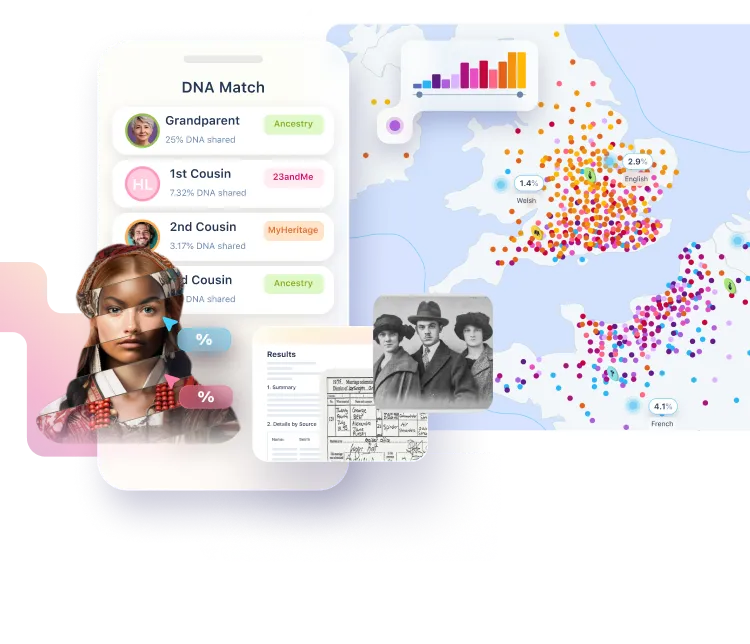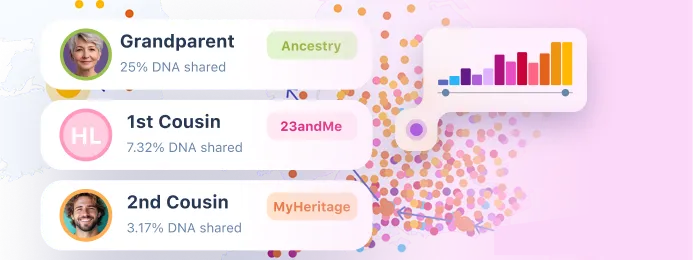
Got DNA tested?
Upload your data to unlock more DNA matches across Ancestry, 23andMe, and MyHeritage — totally FREE.
SIGN UP

Got DNA tested?
Upload your data to unlock more DNA matches across Ancestry, 23andMe, and MyHeritage — totally FREE.
SIGN UPMartha Mourning Taylor 1726 – 1823 – Genealogical Records
Birth Date: 14 Jan 1726
Birth Location: Long Island City, Queens, New York, USA
Death Date: 22 October 1823
Death Location: Granville County, North Carolina, USA
Father: Rev. Taylor
Mother: Alice Littlepage
Spouse(s): John Hunt
Children(s): GEORGE Hunt
The birth of Martha Mourning Taylor took place in 1726 in Long Island City, Queens, New York, USA, to Rev. Daniel Taylor and Alice Littlepage. Martha Mourning Taylor married John Hunt, and together they had GEORGE Hunt. Martha Mourning Taylor's death occurred in 1823 in Granville County, North Carolina, USA.
Find more search results for Martha TaylorFamily tree
Parents
Spouses(s)
Children(s)
Sources
Event Type: Birth
Event Year: 14 Jan 1726
Event Place: Long Island City, Queens, New York, USA
Record Source: Geneanet Community Trees Index
Genealogy Event 2
Event Type: Residence
Event Year: 1769
Event Place: No Township Listed, Granville County, NC
Record Source: North Carolina, Compiled Census and Census Substitutes Index, 1790-1890
Genealogy Event 3
Event Type: Residence
Event Year: 16 Jul 1808
Event Place: Guilford, North Carolina
Record Source: U.S., Encyclopedia of American Quaker Genealogy, Vol I–VI, 1607-1943, U.S., Quaker Meeting Records, 1681-1935, Haverford College; Haverford, Pennsylvania; North Carolina Yearly Meeting Minutes
Genealogy Event 4
Event Type: Death
Event Year: 22 October 1823
Event Place: Granville County, North Carolina, USA
Record Source: Geneanet Community Trees Index, North Carolina, U.S., Wills and Probate Records, 1665-1998, Granville County, North Carolina, Estate Records; Author: North Carolina. Probate Court (Granville County); Probate Place: Granville, North Carolina
 SIGN UP
SIGN UP